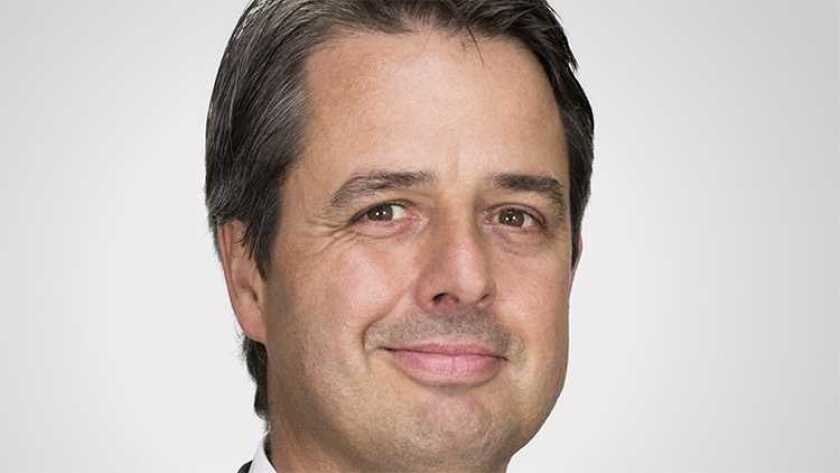Further, it's looking to replicate the same approach across other markets as it continues to build out its network. By its first anniversary in September, Exa expects to have committed €340 million in capex across all projects.
At 878km-long, the Trans Adriatic Pipeline (TAP) transports natural gas from the Caspian region to Europe through Greece, Albania, and Italy. Like other utility providers, TAP AG has deployed thousands of kilometres of fibre across its assets and has been an independent transmission system operator since late 2020.
"There are many utility companies whether it is gas pipelines, oil pipelines, sometimes even highways, where existing fibre assets are underutilised," said Martijn Blanken, CEO of Exa Infrastructure.
"Sometimes the operator of the utility uses it for telemetry purposes, but other than that they don't use it, and this is a good opportunity for them to monetise their asset that is already there," he adds.
Following a tender process, the resulting JV will be 60% owned by Exa Infrastructure and 40% owned by TAP, with employees from both companies seconded as required.
“What we’ve unveiled today is a critical component of a new digital route that links eastern and western Europe along a trade axis that goes back many centuries," Blanken added, saying that organisations with the "greatest amount of network traffic" have been waiting for such a fibre route for years.
"We certainly are looking into doing this more often and there are a few conversations ongoing at the moment. whether they will materialise or not I can't comment on it, but it could happen pretty much anywhere. Anywhere where we have an existing network infrastructure, we are open to this construct," he added.
The pipeline connects with the Trans Anatolian Pipeline at the Greek-Turkish border, crosses Northern Greece, Albania and the Adriatic Sea before coming ashore in Southern Italy to connect to the Italian natural gas network. Exa will share access to TAP’s fibre facilities, which are separate to TAP’s gas business, along its full length. Exa nd TAP expect to obtain any required clearances and the new system is expected to be operational in Q1 2023.

The "behind the scenes" JV is "purely an extension to the Exa network", Blanken told Capacity and will add a direct link from Marseille to Istanbul to Exa's own network infrastructure, with branches connecting to Athens, Sofia and Tirana. The new route will feature 36 pairs of state-of-the-art, high-capacity G652D optical fibre.
However, Exa's customers "are not operationally exposed to the JV". "For all intents and purposes it is an extension to the Exa network… and TAP will receive monetary returns as well," Blanked added.
Utilities and telecoms
In the UK, one culture minister was ridiculed for suggesting that laying fibre inside water pipes may speed up national deployment. However, there are utility companies across the world that either own fibre assets or integrate power and commutations and the deployment level.
For example in India, Adani Group has both power and fibre ventures, which run their cables on the same transmission lines. It's now building data centres with EdgeConneX.
"Firstly, it's far more economic to use an existing asset, secondly time to market and thirdly the added benefit of having fibre alongside a gas pipeline is that the operational risks are substantially smaller relative to a normal route," Blanken says of the benefits.
"There will never be a digger digging trenches next to a gas line and many of the breakages and outages that you see in fibre networks is caused by civil engineering work and human error. The chances of that happening next to a gas pipeline are very slim."
The news breaks as Exa confirmed today that its first six months of operation saw it invest €190 million, with additional capex of up to €150 million due to be committed before its first anniversary in September for new links and upgrades in the northern Balkans, Czech Republic, Poland and Slovakia, as well as further projects in southern Italy and Iberia.
In addition to this work, Exa's network build and optimisation programme comprises multiple projects, primarily focused on routes in the Mediterranean region in southern and eastern Europe. These include:
A 640km cable route between London and Amsterdam including a new cable across the North Sea. Further investments will upgrade infrastructure in Belgium and Germany to "create the shortest and most modern route between London and Frankfurt".
A new 1,000km cable route between Paris and Marseille to meet the demand created by subsea landings there. This includes the creation of a new route into Marseille to provide triple-diversity into "major data centre and cable landing station clusters".
Further upgrades of routes to latest Corning Ultra G.652D specification fibre between the high-traffic Paris, Frankfurt, Amsterdam and Brussels data centre clusters.
Development of two CLS facilities and associated backhaul network
comprising 800km of new network and 1,600km of upgraded routes to support new sub-sea cables scheduled to be built from Italy during the next three years
Expansion into a further 30 carrier-neutral data centres and cable landing stations across Europe and Canada, with more planned in 2023.
Two enhancements to a global low latency product connecting key financial exchanges around the world, centred on London and Johannesburg.
In addition there is more than 700km of long-haul and metropolitan cable investments on the Iberian peninsula
"We aspire to connect the overwhelming majority of the IT workloads in Europe so our main infrastructure need is to connect newer data centres and cable landing station clusters. Our network extensions will go towards where these are being built," Blanken said.





